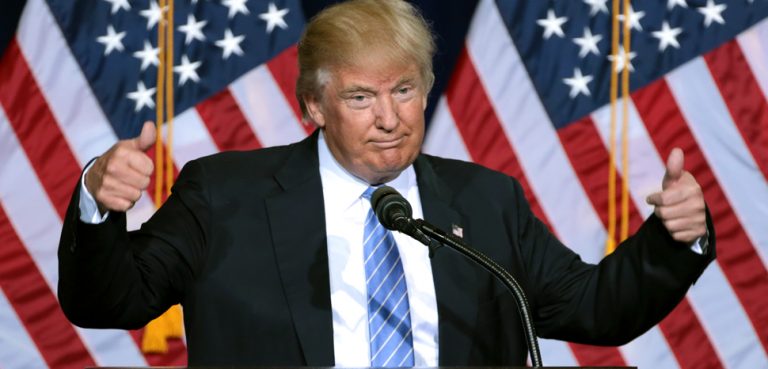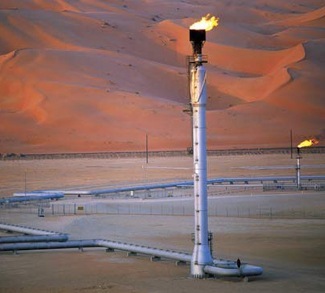Amid last month’s cold weather crisis, 4.77 million Mexican homes and businesses lost power after Texas restricted natural gas exports to Mexico on February 15th. With U.S. natural gas pipeline exports accounting for over 61 percent of Mexico’s natural gas supply, there was little Mexican authorities could do for their constituents when the Texas governor ordered a ban on natural gas exports to Mexico to retain that energy for freezing Texans. Mexican President Andrés Manuel López Obrador (AMLO) should prioritize midstream gas investments and reverse course on his plans to ban hydraulic fracturing. Failing to do so will only perpetuate Mexico’s dependence on imported energy to the long-term detriment of its economy and people.
AMLO is a classic populist—he promised to improve conditions for “the people” through radical policy action that would fix enduring societal issues—but his policies are prolonging Mexico’s energy insecurity. AMLO canceled gas storage projects he associated with corruption, despite Mexico’s shortage of storage facilities. He also promised to ban hydraulic fracturing, or “fracking,” because the technique produces water and air pollution harmful to nearby residents. Populists like AMLO shun compromise, but Mexico can curb fracking’s potential environmental impacts through strict regulations, rather than banning it. Such compromise should now seem more rational in light of widespread blackouts and a 5,000-percent price increase on imported gas during the latest crisis associated with dependence on energy imports. w
In Mexico’s case, energy is one sector where lofty ambitions are actually feasible, but AMLO must reverse course on energy storage investment and fracking to improve the country’s energy situation. Floating regasification units or underground gas storage facilities are a feasible, short-term approach to improve the energy sector’s resiliency. Government efforts to promote shale development, such as AMLO’s predecessor’s ending of a monopoly on oil by state-owned petroleum enterprise Petróleos Mexicanos (Pemex), foster private and foreign investment and long-term energy development. Such policies could inject much-needed capital into Mexico’s economy and increase energy diversification within AMLO’s six-year term.
Mexico has the potential to reverse its foreign energy dependency in a way similar to how the United States exploited its own shale plays. In the course of the 2000s and 2010s, the United States drastically increased domestic natural gas and oil production during the “shale revolution” as firms began fracking its 665 trillion cubic feet of shale reserves, which precipitated the country’s transformation from a net oil importer to exporter. With its 545 trillion cubic feet of shale reserves, however, Mexico has yet to materialize a similar fracking boom. Government promotion of fracking would not solve the country’s energy insecurity overnight, especially because violence, water scarcity, and inadequate infrastructure hinder shale development, but a ban on fracking would eliminate any ventures altogether.
Ultimately, a fracking ban is illogical for the economy and energy sector, which is likely why AMLO has delayed in fulfilling his promise to implement a ban. Energy experts—which populists like AMLO categorize as part of the “elites” that they antagonistically oppose, despite scientific evidence for their assertions—recognize the essential role of fracking in energy diversification. 65 percent of prospective natural gas resources in Mexico are in unconventional reservoirs that can only be exploited with fracking techniques. Pemex executives recognize the destructive influence and irrationality of a fracking ban in a country seeking greater energy autonomy. Even though AMLO has vetoed Pemex shale ventures in recent months, Pemex included shale exploration prospects in its current exploration strategy “in the event that policy may change.”
AMLO will struggle to accomplish all of his ambitious campaign promises during his tenure, but the energy sector offers an arena for AMLO to build a sustainable strategy that includes economic gains and greater autonomy if he alters course. Mexico desperately needs more storage facilities to weather energy crises like the one in February. With the exception of more blackouts, an AMLO fracking ban’s only legacy would be a greater dependence on energy imports and stalled domestic energy diversification, at least until his successor inevitably removes the ban.
Matthew A. Hughes is a graduate student attending Johns Hopkins University. The opinions expressed in this article are those of the author alone and do not reflect the official position of the U.S. Army, the Department of Defense, or the U.S. Government. Also, the appearance of hyperlinks does not constitute endorsement by the U.S. Army, the DoD, or the U.S. Government of the referenced sites or the information, products, or services contained therein.
The views expressed in this article are those of the authors alone and do not necessarily reflect those of Geopoliticalmonitor.com.




